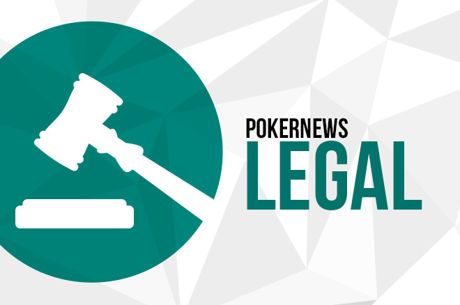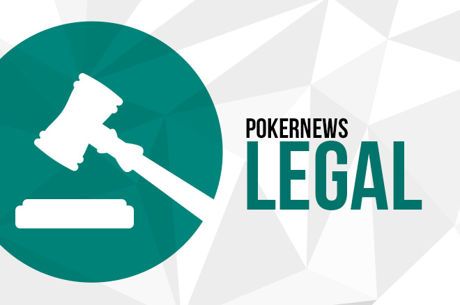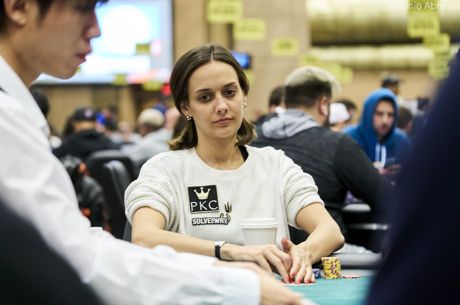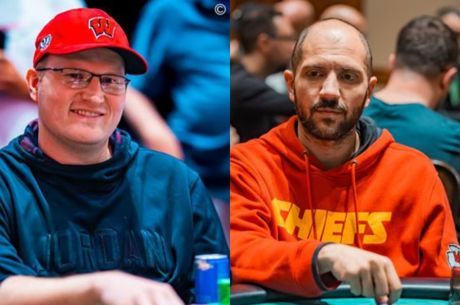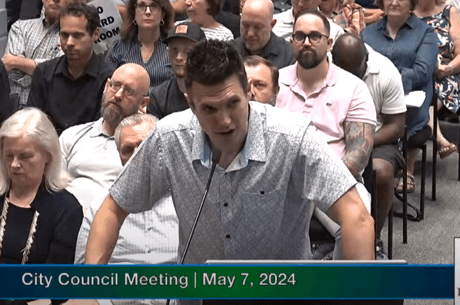Motion for Sanctions Filed Against Mike Postle; Latest on Motion to Dismiss
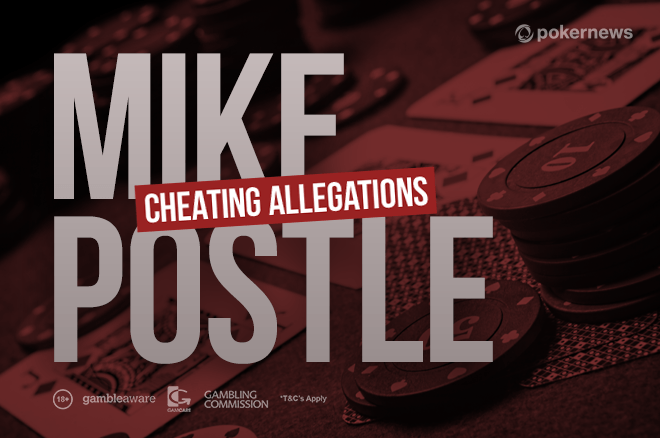
In the early morning hours of April 28, two new court documents were filed against Mike Postle, one a motion for sanctions and the other an opposition to Postle��s motion to dismiss.
A complaint filed in October of last year by the plaintiffs, represented by gaming attorney Maurice ��Mac�� VerStandig, accuses Postle of cheating in livestreamed cash games at Stone��s Gambling Hall to the tune of hundreds of thousands of dollars.
Sanctions Sought by Plaintiffs
In the first document, the plaintiffs move for the imposition of sanctions under Federal Rule of Civil Procedure 11 against Postle by June 1 or whenever the court will consider the motion. Such sanctions are rare in the legal realm and used when legal counsel has acted inappropriately.
In the original complaint, the Plaintiffs allege Postle had confederates assisting him while playing, and they echo that sentiment in regard to his motion to dismiss, which was filed on March 25.
��Unfortunately, it now appears his approach to this litigation is identical, as he purports to be a pro se litigant but is, in fact, having his court papers ghostwritten by one or more unidentified attorneys," the filing reads.
��Upon information and belief, Mr. Postle is without a law school education."
In other words, while Postle claims to be representing himself, the Plaintiffs allege he is violating the Federal Rules of Civil Procedure and local court rules by ��signing and filing documents he has not himself authored.��
The latest filing suggests that Postle��s motion to dismiss is significantly similar to a motion filed by William Portanova in an unrelated case. Portanova was previously reported by the Sacramento Bee to be representing Postle, but since that initial report in October 2019, that legal representation seems to have dissolved.
The motion goes on to highlight several other similarities between the documents including verbatim language and case law. There is also a reference in Postle��s filing to an ��undersigned counsel,�� but such counsel does not exist given he��s representing himself.
��Upon information and belief, Mr. Postle is without a law school education,�� the motion states. ��While it is certainly common for pro se litigants to make legal arguments, and to use resources like Google Scholar to undertake legal research, their citations are rarely as precise as those of Mr. Postle. Similarly, their papers are not normally adorned with certificates of service signed by legal counsel.��
Why is this a big deal? Simply put, if something is ghostwritten there��s a high risk that the person presenting it as their own will not fully understand the arguments within, which could prove detrimental to the court process.
"To be sure, there is no genuine question but that Mr. Postle is using one or more ghostwriter(s) in this case."
The motion later adds: ��While Mr. Postle could no doubt endeavor to study the authorities upon which he seeks or opposes relief, it is difficult to fathom he would be able to meaningfully defend and argue the merits of such a paper in the manner it could be argued by its actual author. To be sure, there is no genuine question but that Mr. Postle is using one or more ghostwriter(s) in this case. Perhaps Mr. Portanova is the ghostwriter; perhaps he is not. One way or another, the conduct is sanctionable in nature.��
In terms of sanctions, the Plaintiffs are not seeking summary judgment or a monetary sanction, but rather the striking of Postle��s filings �C such as his motion to dismiss �C as well as an order directing him to either proceed representing himself or appear with his actual counsel.
Under Federal Rule of Civil Procedure 11, a reasonable opportunity to respond must be given before a motion for sanctions can be filed. That means after being served via mail on April 6, Postle had three weeks to respond, either with an explanation, altering his filings, or submitting new documents. Had he done so, the Plaintiffs would not have been able to file their motion. Given the official filing, it��s safe to assume Postle did not respond.
In fact, counsel for the Plaintiffs revealed an ironic twist: ��Mr. Postle was served the Motion for Sanctions before he filed the Motion [to Dismiss]. Unfortunately, both he and his ghostwriter seemed to not care.��
While other defendants are a part of the original action, including Stones and Justin Kuraitis, sanctions are not sought against them.
Pushing Back Against Postle��s Motion to Dismiss
In the other court filing, the plaintiffs doubled down by offering opposition to Postle��s renewed motion to dismiss, which basically argued three points.
In his motion to dismiss, Postle argued that one can��t be sued for negligence per se in California. In the response, the plaintiffs argue that he can �C that he cheated in a casino and he is liable to those that he cheated �C and cited case law examples dating back 125 years.
Postle also argued that unjust enrichment does not exist in California, which the plaintiffs contradict by once again offering dozens of case law examples.
"Mr. Postle��s now-debunked effort to con others into believing he is anything more than a middling poker player with dishonest inclinations."
Finally, the real meat of Postle��s motion to dismiss was that the original complaint does not contain enough particularities to justify action. Basically, when someone is sued, there must be a short and plain summary of what they��re being sued for, however, in allegations of fraud such as this, particularities such as who, what, when, where, and how must be satisfied.
Postle argues that the original complaint does not meet this criterion as it does not consider all the hands he played. The plaintiffs' response is such that they��ve provided more than enough in terms of particularities in their 54-page filing, and that any others, such as specific hands, can be presented in an actual trial.
��This contention �C as well as each of the other arguments put forth in the Motion �C is ultimately as unavailing as Mr. Postle��s now-debunked effort to con others into believing he is anything more than a middling poker player with dishonest inclinations,�� the opposition reads. ��This is a case about Mr. Postle��s cheating scheme, the laws he violated in carrying out that scheme, and the both legal and equitable rights of his unsuspecting victims.��
Neither Postle nor Portanova responded to PokerNews�� request for comment by the time of publication.
The court will now consider the latest motions by the Plaintiffs, and of course, PokerNews will continue to monitor the situation as it plays out in the courts.
In this Series
- 1 Mike Postle Accused of Cheating During Livestreamed Cash Games
- 2 10 Suspicious Hands Played by Mike Postle on Livestream
- 3 Stones Gambling Hall Suspends All Poker Broadcasts Following Alleged Cheating
- 4 Stones Launches Investigation Into Postle Cheating Saga
- 5 PokerNews Podcast: Stones Scandal
- 6 Mike Postle Goes on Mike Matusow's 'The Mouthpiece' Podcast, Denies Cheating
- 7 LATB, WSOP, PokerStars, and More on Security of Their Livestreams
- 8 Mike Postle, Stones Parties Hit With $10M Lawsuit
- 9 Graphics Company Reacts to Mike Postle Cheating Allegations Saga
- 10 Watch List: Investigative Videos Mike Postle Cheating Allegations
- 11 Watch Whistleblower Veronica Brill on Joey Ingram's Podcast
- 12 PokerNews Podcast: Jeff Boski on Postle Scandal
- 13 Mike Postle's Lawyer: "I Know Such Streaks Are Possible"
- 14 The Postle Lawsuit is Not as Clear Cut As It May Seem
- 15 Top 10 Stories of 2019: Mike Postle Caught Cheating on Livestream
- 16 Mike Postle Accused of Avoiding Court Summons
- 17 Mike Postle Files, Possibly Leaks Own Motion to Dismiss
- 18 Marle Cordeiro Files Lawsuit Against Mike Postle Seeking $250K
- 19 Stones in New Motion to Dismiss Mike Postle Lawsuit: ��Casinos Do Not Owe a General Duty of Care to Gamblers"
- 20 Motion for Sanctions Filed Against Mike Postle; Latest on Motion to Dismiss
- 21 Plaintiffs Respond to Stones & Justin Kuraitis Motions to Dismiss in Mike Postle Case
- 22 PokerNews-Op Ed: Postle Tightlipped in Oral Arguments, Motion to Dismiss Outcome a Coinflip
- 23 Plaintiffs' Case Against Mike Postle, Stones Dismissed by Judge
- 24 Plaintiff's Lawyer Offers a Reflection on the Stones/Mike Postle Ruling
- 25 Judge Dismisses Marle Cordeiro��s Case Against Mike Postle for Lack of Jurisdiction
- 26 Settlement Finalized for 60 Plaintiffs in Case With Stones, Kuraitis
- 27 Mike Postle, Justin Kuraitis Break Silences in Wake of Settlement
- 28 Leaked Term Sheet Reveals Details Regarding Stones/Kuraitis Settlement; Plaintiffs Paid $40,000
- 29 The Muck: Kuraitis, Stones Lash Out After Twitter Silence
- 30 Plaintiff's Counsel Maurice "Mac" VerStandig Reflects on the Mike Postle Litigation
- 31 Galfond, Berkey Helping Propel Research into Mike Postle's Play
- 32 Top Stories of 2020, #5: Mike Postle Saga Winds Down
- 33 Postle Hit With Two Motions to Strike, Dropped by Lawyers

